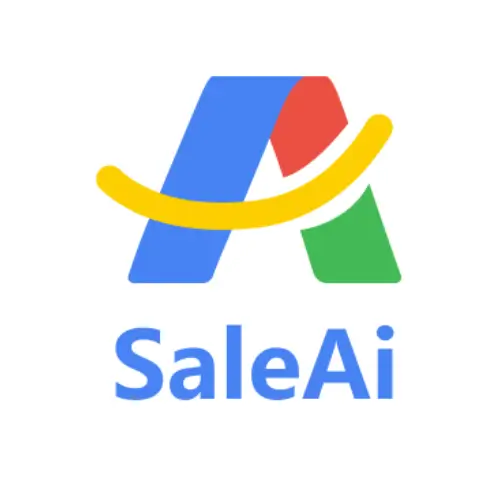As global trade becomes more interconnected, the complexity of cross-border operations grows exponentially. Businesses must navigate a wide range of factors—from regulatory compliance and market trends to buyer identification and supply chain optimization. For many, the sheer volume of data involved in global trade has made manual processes unsustainable.
Enter artificial intelligence (AI), a transformative technology that is reshaping how businesses approach global trade operations. AI enables companies to process massive datasets, uncover actionable insights, and automate repetitive tasks, all while reducing costs and improving efficiency.
But how does AI fit into the context of global trade, and what specific advantages can it offer? This article delves into the role of AI in modernizing trade operations and highlights how SaleAI leverages AI to empower businesses worldwide.
The Role of AI in Global Trade Operations
AI in global trade is not a futuristic concept—it’s a present-day reality. It is being used to analyze trade data, predict market trends, optimize logistics, and even automate customer interactions. Below are some of the core areas where AI is making an impact:
-
Trade Data Analysis
Global trade generates vast amounts of data from sources such as customs records, shipping manifests, and procurement reports. AI tools can process and analyze this data to identify trends, forecast demand, and uncover new market opportunities. -
Buyer Identification and Matching
AI simplifies the process of finding potential buyers by analyzing trade patterns, procurement histories, and market conditions. This eliminates the guesswork and allows businesses to focus on high-value prospects. -
Regulatory Compliance
Navigating customs regulations and trade laws can be a daunting task. AI tools can help businesses ensure compliance by automatically flagging issues and providing guidance based on real-time updates. -
Supply Chain Optimization
AI optimizes logistics by analyzing factors such as transportation costs, delivery times, and supplier performance. This ensures that businesses can maintain efficient and reliable supply chains. -
Personalized Marketing
AI helps businesses tailor their marketing efforts to specific buyers and regions by analyzing customer behavior and preferences. This improves engagement and conversion rates.
Why AI is Critical for Global Trade Success
Traditional methods of managing global trade operations often rely on manual processes, fragmented data sources, and outdated technologies. These approaches are not only time-consuming but also prone to errors. AI addresses these challenges by offering:
- Speed: AI can process and analyze data in real time, enabling businesses to make faster, data-driven decisions.
- Accuracy: By eliminating human error, AI improves the accuracy of trade forecasts, compliance checks, and buyer matching.
- Scalability: AI tools can handle large volumes of data and scale operations to accommodate business growth.
- Cost Savings: Automating repetitive tasks reduces labor costs and operational inefficiencies.
How SaleAI Incorporates AI for Global Trade Operations
SaleAI is a cutting-edge platform that integrates advanced AI technologies to simplify and enhance global trade operations. Here’s how SaleAI’s features align with the needs of modern businesses:
-
AI-Powered Trade Data Insights
SaleAI processes over 30 billion global trade records to provide actionable insights into market trends, buyer behavior, and competitive landscapes. Businesses can use these insights to make informed decisions about market entry, pricing strategies, and product offerings. -
Automated Buyer Matching
SaleAI’s AI algorithms analyze buyer procurement histories, industry trends, and regional demand to identify high-potential leads. This ensures that your sales efforts are focused on the most promising opportunities. -
Predictive Market Analytics
With predictive analytics, SaleAI helps businesses forecast buyer demand and market conditions. This enables proactive decision-making and reduces the risks associated with market fluctuations. -
Regulatory Support
SaleAI assists businesses in navigating complex trade regulations by providing real-time updates and compliance checks. This minimizes the risk of delays and penalties. -
Integrated Marketing Automation
SaleAI combines AI with automated marketing tools to deliver personalized outreach across platforms like email, WhatsApp, and LinkedIn. This enhances engagement and increases conversion rates.
Practical Applications of AI in Global Trade
-
Market Entry Planning
AI tools can analyze trade data to identify high-demand regions and product categories, helping businesses prioritize their market entry strategies. -
Competitor Analysis
By analyzing trade data, businesses can gain insights into their competitors’ supply chains, pricing strategies, and market presence. -
Customer Retention
AI enables businesses to track buyer behavior and preferences, allowing them to deliver personalized experiences and strengthen customer relationships. -
Risk Management
AI can identify potential risks in supply chains, such as delays or regulatory issues, and provide recommendations for mitigation. -
Cost Optimization
AI tools optimize logistics and procurement processes, reducing costs while maintaining efficiency.
Challenges and Limitations of AI in Global Trade
While AI offers numerous benefits, it’s important to acknowledge its limitations:
- Data Dependency: The effectiveness of AI depends on the quality and quantity of data available. Incomplete or outdated data can lead to inaccurate insights.
- Integration Challenges: Implementing AI tools may require changes to existing systems and processes, which can be time-intensive.
- Human Oversight: AI is a powerful tool, but human expertise is still essential for interpreting data and making strategic decisions.
The Future of AI in Global Trade
AI is poised to play an even greater role in global trade as technologies continue to evolve. Future advancements may include:
- Real-Time Market Intelligence: AI tools that provide instant updates on market conditions and buyer activities.
- Autonomous Supply Chains: Fully automated supply chains that use AI to manage logistics, inventory, and procurement without human intervention.
- Enhanced Buyer Engagement: AI-powered chatbots and virtual assistants that deliver personalized experiences at scale.
As these technologies become more accessible, businesses of all sizes will be able to leverage AI to compete in the global marketplace.
Conclusion
AI is revolutionizing global trade operations by enabling businesses to process complex data, optimize processes, and make smarter decisions. Tools like SaleAI are at the forefront of this transformation, offering exporters and suppliers the ability to scale their operations, reduce costs, and achieve better results.
Whether you’re navigating market entry, optimizing your supply chain, or identifying high-value buyers, AI provides the tools and insights you need to succeed in the competitive world of global trade.
Start your journey with SaleAI today and discover how AI can simplify your global trade operations and take your business to the next level.





